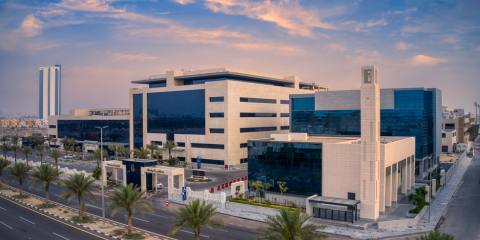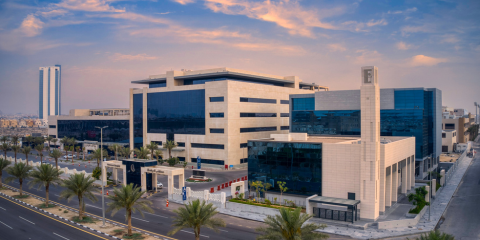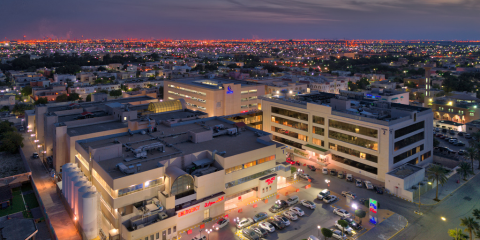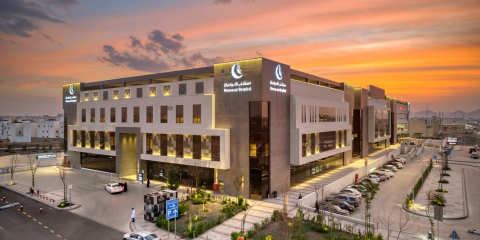
18/05/2024
These operations are considered the first of their kind in private hospitals in the Eastern Province, as they were performed using a surgical robot by Dr. Abdul Rahman Al-Muhrij (consultant urologist for oncology, robotic surgery, laparoscopy, and kidney stones), who performed many similar operations during his work period outside and inside the Kingdom of Saudi Arabia.
This technology is currently considered the best for this type of complex operation compared to traditional surgical incisions, and even laparoscopic operations due to the speed of recovery, small size of wounds, lack of bleeding, and mild pain after the operation. The urinary catheter can also be removed within five to ten days, and the patient can Discharge from the hospital within a day or two.
This type of operation using robotic technology requires the presence of specialized medical personnel, as most of the current operations require a traditional surgical incision or laparoscopy, while they can be performed using the advanced technology of the robotic device. Various urinary tract operations can also be performed using the robot for all ages, including partial or complete removal of the kidney, adrenal gland, prostate, or urinary bladder, in addition to operations to repair the urinary tract and re-implant the ureter.
Dr. Abdul Rahman Al-Mehraj advises early screening for prostate tumor through a medical examination and blood analysis from the age of 50 on an annual basis, or from the age of 45 when there is a family history of prostate cancer, as prostate cancer does not have any symptoms or urinary problems at the beginning of the disease, except In advanced cases such as weight loss and body or bone pain.
Knowing that malignant prostate cancer is considered a common tumor, especially over the age of 60, it is detected by a urologist, by doing a blood test, with the possibility of needing to do x-rays and take samples of prostate tissue.
Dr. Abdul Rahman advises taking prostate samples through the perineal area, as it is considered the cleanest area, and the rate of urinary infections is very rare compared to the traditional method. This method is performed under local or complete anesthesia, according to the patient’s desire.
It is worth mentioning that this type of operation depends on modern medical technology, which is in line with the vision of Al-Mouwasat Medical Services Company in attracting competencies and precise sub-specialties through the use of the latest technologies and advanced medical equipment in this field.
The success of a group of qualitative operations at Al-Mouwasat Hospital in Al-Khobar to remove prostate cancer using a surgical robot
The medical team at Al-Mouwasat Hospital in Al-Khobar was able to perform several operations to completely remove the prostate due to the presence of advanced-grade malignant cancer, along with reconstruction of the urethra in the urinary bladder.These operations are considered the first of their kind in private hospitals in the Eastern Province, as they were performed using a surgical robot by Dr. Abdul Rahman Al-Muhrij (consultant urologist for oncology, robotic surgery, laparoscopy, and kidney stones), who performed many similar operations during his work period outside and inside the Kingdom of Saudi Arabia.
This technology is currently considered the best for this type of complex operation compared to traditional surgical incisions, and even laparoscopic operations due to the speed of recovery, small size of wounds, lack of bleeding, and mild pain after the operation. The urinary catheter can also be removed within five to ten days, and the patient can Discharge from the hospital within a day or two.
This type of operation using robotic technology requires the presence of specialized medical personnel, as most of the current operations require a traditional surgical incision or laparoscopy, while they can be performed using the advanced technology of the robotic device. Various urinary tract operations can also be performed using the robot for all ages, including partial or complete removal of the kidney, adrenal gland, prostate, or urinary bladder, in addition to operations to repair the urinary tract and re-implant the ureter.
Dr. Abdul Rahman Al-Mehraj advises early screening for prostate tumor through a medical examination and blood analysis from the age of 50 on an annual basis, or from the age of 45 when there is a family history of prostate cancer, as prostate cancer does not have any symptoms or urinary problems at the beginning of the disease, except In advanced cases such as weight loss and body or bone pain.
Knowing that malignant prostate cancer is considered a common tumor, especially over the age of 60, it is detected by a urologist, by doing a blood test, with the possibility of needing to do x-rays and take samples of prostate tissue.
Dr. Abdul Rahman advises taking prostate samples through the perineal area, as it is considered the cleanest area, and the rate of urinary infections is very rare compared to the traditional method. This method is performed under local or complete anesthesia, according to the patient’s desire.
It is worth mentioning that this type of operation depends on modern medical technology, which is in line with the vision of Al-Mouwasat Medical Services Company in attracting competencies and precise sub-specialties through the use of the latest technologies and advanced medical equipment in this field.




